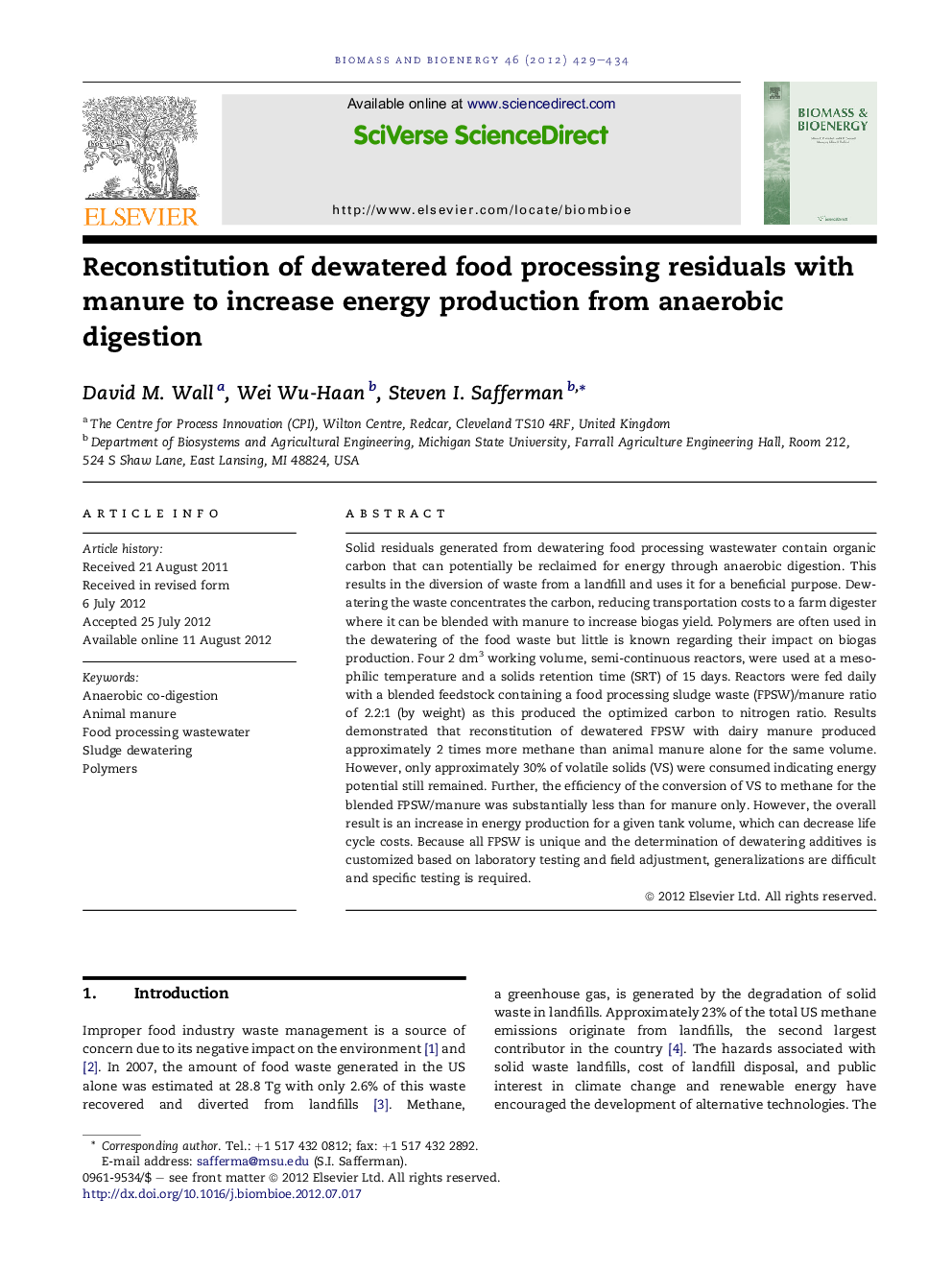| کد مقاله | کد نشریه | سال انتشار | مقاله انگلیسی | نسخه تمام متن |
|---|---|---|---|---|
| 677176 | 1459847 | 2012 | 6 صفحه PDF | دانلود رایگان |

Solid residuals generated from dewatering food processing wastewater contain organic carbon that can potentially be reclaimed for energy through anaerobic digestion. This results in the diversion of waste from a landfill and uses it for a beneficial purpose. Dewatering the waste concentrates the carbon, reducing transportation costs to a farm digester where it can be blended with manure to increase biogas yield. Polymers are often used in the dewatering of the food waste but little is known regarding their impact on biogas production. Four 2 dm3 working volume, semi-continuous reactors, were used at a mesophilic temperature and a solids retention time (SRT) of 15 days. Reactors were fed daily with a blended feedstock containing a food processing sludge waste (FPSW)/manure ratio of 2.2:1 (by weight) as this produced the optimized carbon to nitrogen ratio. Results demonstrated that reconstitution of dewatered FPSW with dairy manure produced approximately 2 times more methane than animal manure alone for the same volume. However, only approximately 30% of volatile solids (VS) were consumed indicating energy potential still remained. Further, the efficiency of the conversion of VS to methane for the blended FPSW/manure was substantially less than for manure only. However, the overall result is an increase in energy production for a given tank volume, which can decrease life cycle costs. Because all FPSW is unique and the determination of dewatering additives is customized based on laboratory testing and field adjustment, generalizations are difficult and specific testing is required.
► Energy production in anaerobic digestion can increase by co-blending food waste.
► Energy for transporting food waste to blend with manure is less when dewatered.
► Dewatered food waste in manure produced twice as much methane than manure.
► Efficiency of carbon to methane was low because of ammonium bicarbonate production.
► Carbon destruction was 30%, more energy could be produced by enhancing hydrolysis.
Journal: Biomass and Bioenergy - Volume 46, November 2012, Pages 429–434